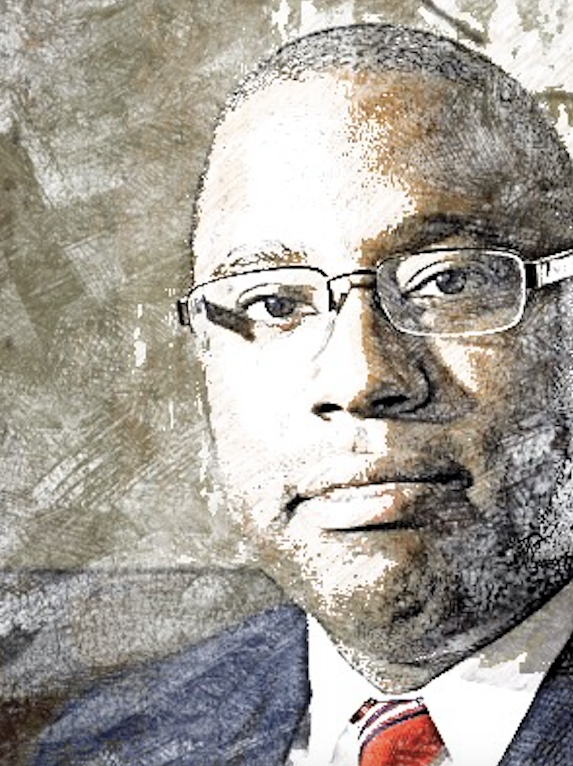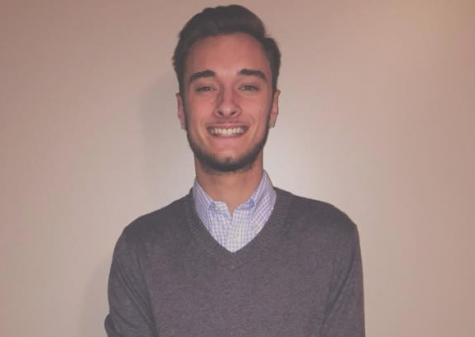During a turbulent and explosive time for American politics, officials across the political spectrum are divided by either the progression within the country to move forward or they are struck by the newly inaugurated style of the executive branch. In local government, the ability to please all constituents and appease the smaller matters is sometimes harder. However, for some, it’s part of the role that one fills when elected into office.
Boston’s District 7 City Councilor and mayoral candidate Tito Jackson believes that while the future needs to be built on the nation’s history, progress needs to be made by taking a step forward, even if that interprets to resisting against and questioning what is above those means.
“We are the birthplace of the American Revolution, and I think this is the beginning of a second American Revolution– one of hope, one of unity, one of solidarity,” said Jackson to Journal reporters in a recent interview as he explained that the city of Boston should lead in these times of division and the rest of the country, he hopes, will follow. With the nation’s eyes fixed on newly inaugurated President Donald Trump’s next move, Jackson said the young people of today should be ready to position their next pawn.
“It is critical that we exhibit courageous leadership, and silence is complicit,” said Jackson. “Those who sit on the sidelines in these times are complicit.”
Part of taking action in order to enact change amidst the political climate, Jackson believes, is to involve college students and other young people with government in a way that has never been seen before. Roughly one third of the city being of the ages 20 to 34, the issues and realities that these people experience are representative of the city itself. Jackson said that inviting the voice of well-informed and impatient students to government in the city of Boston is important in order to include this population in a social dialogue.
With Trump having recently signed an executive order that placed a ban on seven predominantly Muslim countries, Jackson has taken a side and placed value on the international community, especially those who are studying in the United States as international students.
“I think with a number of international students that we have in the city of Boston, it would be catastrophic for us to blink in the face of adversity, in the face of a bully and in the face of a demagogue,” said Jackson.
According to Jackson, Trump’s “complete and total disregard for the American Revolution Constitution” has prompted a perception as important as reality. While the courts wrestle with this issue, the impact of Trump’s executive order is felt by common people, students in the city of Boston. International students alike are concerned of what may come next by way of the pen of America’s newest president, some who, looking ahead, have questioned the safety of their student visas, according to a recent article in The Journal. Other young people have been consumed by anxiety, wondering if they should even attend school, the fear of themselves or their parents potentially being detained now holding a heavy weight on their minds Jackson said.
In the eyes of the international community, Jackson said the U.S. cannot only tolerate diversity, but must celebrate it, or the region and city will become an unattractive place resulting in the attendance at colleges and universities spiraling downward. The Councilor said that in the current climate where people are being targeted because of their religious beliefs, it is ironic how the U.S. was founded as a nation where those persecuted for their religion fled to.
Whether the cameras and microphones are on or off, Jackson said he will continue to show the people of the city that in these drastic times, the government of Boston has their back by refusing to allow the city to turn its back on its neighbors and community in order to profit. This “dirty money” is a deficit to society rather than an asset said Jackson, who believes it will irreparably harm the local economy.
“The Boston that I want to build will be more democratic. The Boston I’m looking to build is going to be more transparent,” said Jackson. “I would submit to you in the words of great Bostonian Martin Luther King, that we are seeking to create the beloved human being here in Boston.”
Hitting close to home for Jackson is another social issue; gender equality. In order to refrain from being complicit in combating this issue, Jackson said that men need to step forward to change the culture and lead equitable opportunities across the board for women. In order to “change the reality that [women] did not create” it is crucial to have male leadership so that the responsibility is not solely on women to fight for equity the Councilor said. Jackson said that the concept of manhood should not be surrounded around an image of someone who is cold hearted and refusing to show emotion, but of opening up and being vulnerable while also challenging other men.
“I was born to a 13-year-old who was sexually assaulted by two men,” said Jackson. “It’s easy to have conversations about what we should do in front of women, but the real conversations and the challenges are in our men caves.”
In the swarm of political commotion and social reform, Jackson said that cities are the last frontier, vital and pivotal sites to spawn and facilitate the change he strives toward. Massive percentages of people are located in cities like Boston, allowing cities to be a platform upon which to present their legislation and ideals. With an audience as large as Boston, Jackson’s future plans for the city start with his ability to reach the public in mass quantities.
Said Jackson of why cities are so important in the scope of inciting change, “There are more people who visit [Boston’s] Faneuil Hall annually than Disney World.”
Mayor Martin Walsh has publicly spoken about issues of social injustice, a point to that Jackson concurs. Being a candidate for the position, Jackson believes that a mayor should take a stance, but he is skeptical of the reasoning behind publicly funding a helipad, as well as spending additional funds to allow General Electric to put a patch of their logo on the Boston Celtics’ jerseys. A fighter for the people, Jackson plans to roll out legislature in order to help those in the city area, condemning the use of budgetary funds that do not directly support the members of the Boston community.














